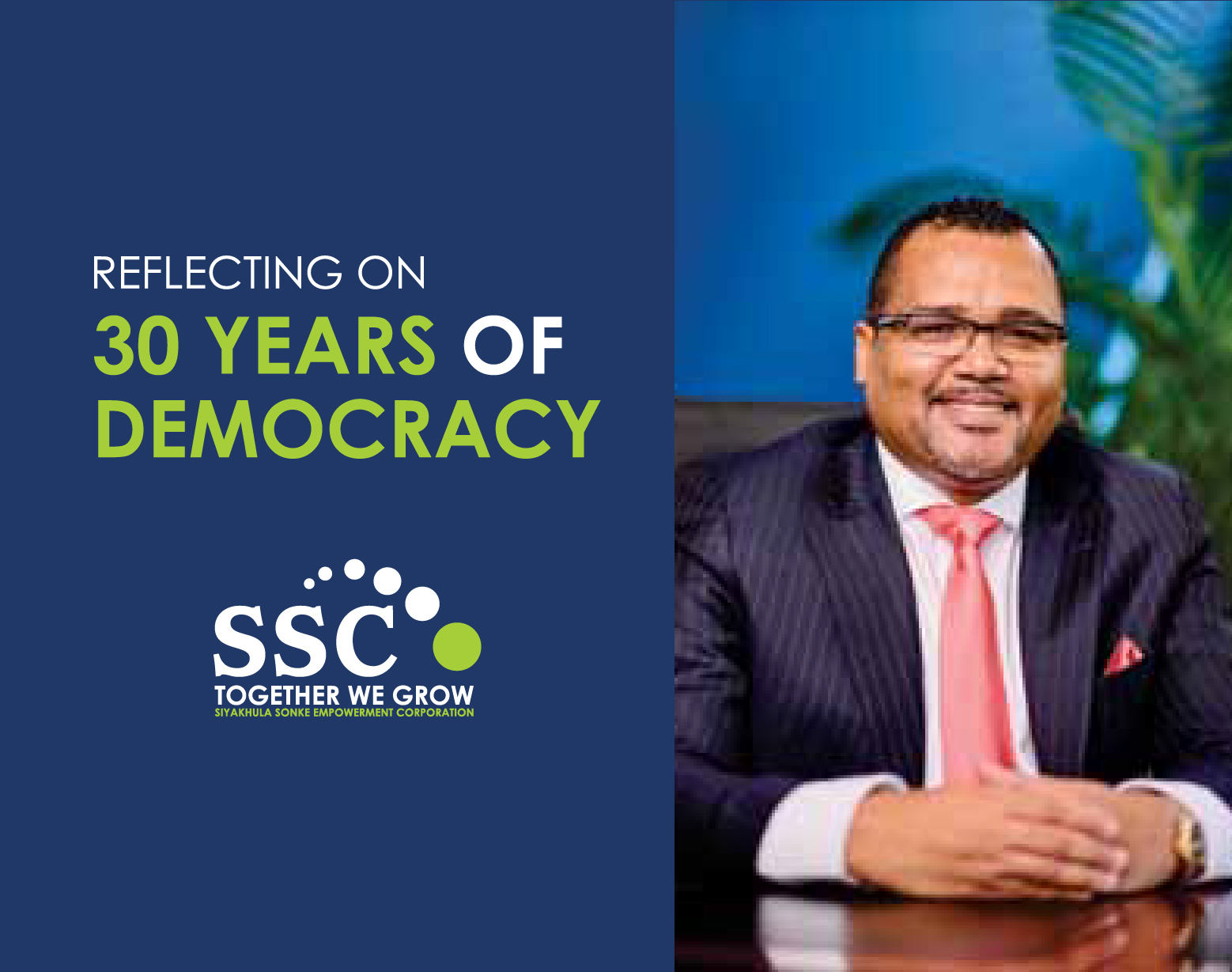
SSC Group's resilience for nearly two decades as a 100% black-owned and majority black women-owned company.
Since leaving Anglo-Platinum 19 years ago, where he was Head of Transformation, for the world of entrepreneurship, Fred Arendse has sought to instill transformation as an inherent part of his group of companies.
He formed and started the SSC Group from his pension payout in 2005 and has made sure that the company embodied and embraced transformation in sync with South Africa’s Constitution and democratic goals of true broad based black economic empowerment (B-BBEE).
“It is my vision of establishing a diversified company owned by black shareholders, communities and the workers.
My career was built at the Anglo stable, and I was very fortunate to be the youngest at any senior level when I worked in the company. When I left, I had this burning desire to build my own company based on the Anglo- American diversified business model,” he says.
Legal Tussles with Foreign Companies
The SSC Group, Arendse says, is the foundation for the black Anglo-American vision through which he and his partners have inculcated the culture of transformation as a part of its DNA. The company is 100% black-owned, and is also majority black-women owned.
A B-BBEE Level 1 Contributor.
“Everywhere SSC has been partnering, we have been insisting on transformation. We have taken international companies to court for failing to comply with transformation legislation, for example, non-payment of dividends to black shareholders or partners,” Arendse explains. A proud moment in my career was when I took on two of the top five mining companies in the world for undermining transformation, fairness and equity and was victorious in both instances and particular where the communities and mine employees received their dividends and additional shares.
Arendse says that international companies apply intricate strategies, including asset stripping and transfer pricing to give the impression that they were running at a loss to avoid paying dividends to black shareholders. Beyond the direct impact on black shareholders, the country suffers a significant disadvantage through tax revenue losses and value addition through minerals.
SSC Group offers a diverse range of services in the mining value chain such as underground mining, mining rehabilitation, underground equipping, mining and gas exploration, specialized underground backfilling mining support, advisory services, human capital and industrial relations, renewable energy, SMME development, ESG reporting, a digital agency, and investment management.
The company also has direct subsidiaries namely – Sekgwa Mining Services, SN Mining Services, SSC Advisory, uMoya Human Capital, Enable-e-Africa, ESGO, SSC Chemicals and SSC Energy – offering the diverse services. These subsidiaries are also black-owned.
The SSC Group's transformation agenda explains why it stands in solidarity with the Black Business Council (BBC) at this week’ Annual Summit as we mark 30 years of democracy.
This summit is a milestone that serves as a powerful testament to the struggles black business has endured and the progress it has achieved as part of our nation’s journey towards equality and empowerment.
“As we convene at this pivotal moment, we recognise the profound impact of black entrepreneurship in driving economic growth and social change. With unwavering determination, we commit to amplifying voices, dismantling barriers, and fostering inclusive opportunities for all. Together, let us honour the legacy of resilience and chart a course towards a future where every entrepreneur can thrive.
Arendse and the Board of Directors are now aiming at acquiring mines as part of the Group's expansion and growth strategy – a case in point being the bid for sister gold mines, Lily and Barbrook, in Louisville near Barberton in Mpumalanga.
The process has, however, been delayed for nearly a decade now by on-going litigation and a protracted Business Rescue process.
The Group's strategy has been established across the mining value chain.
B-BBEE Has Failed
His view is that the B-BBEE legislation should be overhauled and revamped. The B-BBEE framework must be sharpened so that it will have the desired impact of ensuring that blacks reap tangible benefits from B-BBEE deals instead of being used as fronts that enrich white-owned and foreign companies.
“Many black-owned companies have the potential to contribute immensely towards the national development plan trough poverty alleviation, job creation and expanding the tax revenue base.
“Government is failing us and the country at large cannot police B-BBEE deals. The B-BBEE Commission does not have capacity to do that.
There are many B-BBEE transactions, but they show no value that is accruing to the black partners,” says Arendse.
“The B-BBEE Commission does not police these deals. It is always enough when a company says blacks have, for example, 30% shareholding. No one asks what have the black shareholders benefited. It is a simple, but important question to ask – as a shareholder, how much in dividends have you received and is the company doing a proper skills transfer to the historically disadvantaged persons?”
Arendse states that another reason B-BBEE has failed is because it focuses on benefiting the politically connected in contrast to empowering and moulding solid entrepreneurs, the employees and the communities involved.
“We need to change the narrative that blacks cannot start, grow and run big businesses,” says Arendse.
Lack of funding, too much red tape and corruption for black entrepreneurs also compounded the failure of B-BBEE, he says, because they “did not have the luxury of coming from wealthy families where members could contribute money.”
Business Man with a Social Conscious
Arendse is a trailblazer with a degree in Business Management and Human Resources. He also holds leadership positions in various organizations such as the Black Business Council of South Africa, and the Progressive Professional Forum. Arendse is the founding Chairman of the Foundation for Peace and Prosperity, a non-profit organisation. He is also the founding President of the Junior Mining Council (NPC). Arendse is a visionary and insightful leader who understands the transformative mind set that every businessman in South Africa must possess, if we are to address the triple threat of poverty, unemployment and inequality.
